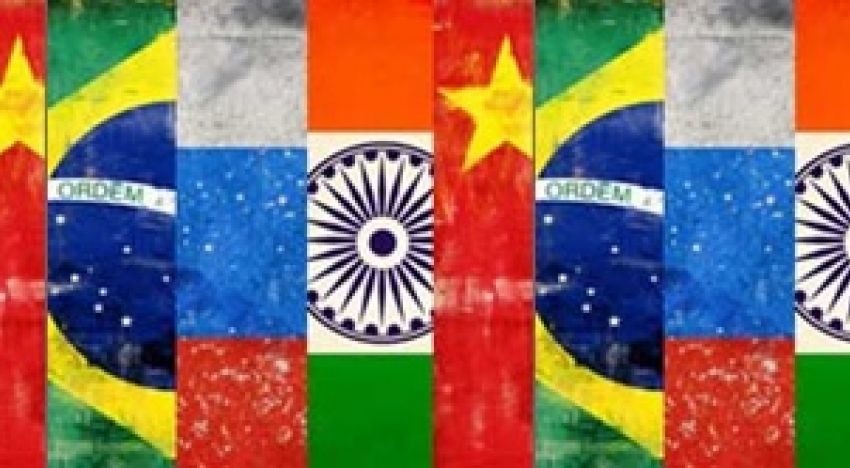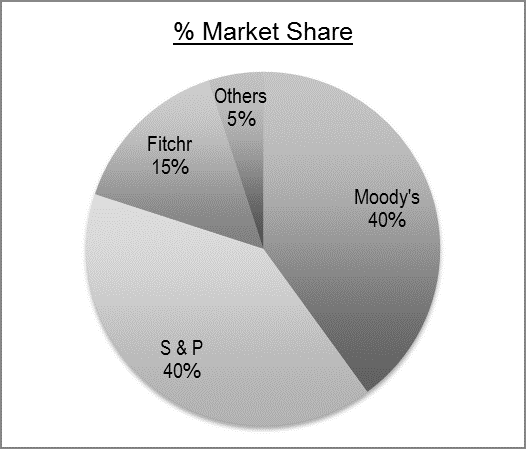A New Credit Rating Agency for BRICS

Please note that we are not authorised to provide any investment advice. The content on this page is for information purposes only.
Credit Rating Agencies have been a lot in news ever since the US Subprime Mortgage Crisis 2007. Later, Europe blamed them for making matters worse for individual countries by downgrading Greece and Cyprus to ‘junk’ status. Over a period of time, over-reliance on ratings has been a cause of worry to many. The biggest players in the credit rating market are known as the Big Three: Standard & Poor’s, Moody’s and Fitch. They form a large share in the global credit rating market (roughly 95% in 2013)
Credit Rating Agencies have been a lot in news ever since the US Subprime Mortgage Crisis 2007. Later, Europe blamed them for making matters worse for individual countries by downgrading Greece and Cyprus to ‘junk’ status. Over a period of time, over-reliance on ratings has been a cause of worry to many. The biggest players in the credit rating market are known as the Big Three: Standard & Poor’s, Moody’s and Fitch. They form a large share in the global credit rating market (roughly 95% in 2013)
and have time and again been blamed for preferential treatment and the methodology they use to provide ratings. The idea of creating an alternative to the western rating agencies is slowly gaining momentum. Earlier in June 2014, Russia and China announced establishing a joint rating agency, which both countries believe, will balance the global economic outlook.
Table of Contents
BRICS association with Credit Ratings Agencies
Brazil, Russia, India, China and South Africa or most commonly known as BRICS could form its own rating agency along with its own bank in 2015. The emerging countries believe that western rating agencies are a biased authority focusing optimistically on developed nations and pessimistically on the developing ones. Russia has been more than keen on such a proposal due to its Ukraine crisis and western sanctions. An independent rating agency could but bring more hope to Russia since it needs more optimistic market reaction.
Brazil
In 2014, Brazil and Russia were hit the due to downgrade in their sovereign risk ratings. Standard & Poor’s downgraded Brazil’s long-term debt rating to BBB-, which is agency’s lowest investment-grade rating. The ministry rejected the arguments that Brazil’s fiscal credibility had “systematically weakened”. Brazil remained strong on its views that Brazil had strong economic fundamentals and health standing as compared to other major economies. Moody’s and Fitch, however, did not downgrade Brazil before elections last year in March.
In 2015, Moody’s downgrade of Brazil’s state owned oil company had been purely due to the corruption scandals which is considered to be one of the biggest ever in history of Brazil Scandals.
Russia
Russia has been downgraded by S&P in 2015 below the investment grade for the first time in ten years! Russia called the decision as “overly pessimistic.” The reaction from Russia is very similar to the outburst by Europe during the Eurozone crisis that caused them to make some stringent changes in the credit rating agencies operating in Eurozone.
The decision to downgrade Russia is not a surprise since the country has witnessed some big downfalls in its economy some of which is due to falling oil prices and ruble. As much as Russia denies the rating it received, it also knows that it is very difficult to change the market sentiments that are quite dependent on these ratings.
This could have led emerging markets wanting to have an independent credit rating agency, which could be a rival to the existing western players.
As early as in 2014, Russia and China were in talks to establish an institution that will reduce their dependence on western credit agencies. Beijing and Moscow announced the rival agency could be established by later this year.
India
New Credit Ratings in India depends on the performance of the newly elected government. S & P has made it clear that it could raise the sovereign rating of the country provided real per capita GDP reflects a growth of 5.5%. It could lower it incase current government’s structural reform fails to improve fiscal and debt ratios. According to Fitch, India’s sovereign credit profile could see an improvement provided it brings down it high public debt. India has its own credit rating agency considered the largest in India, CRISIL, established in 1987 besides many others like CARE, CIBIL etc. It will be interesting to note what new information BRICS rating agency will bring to India.
China
China has time and again believed that the existing big credit rating agencies have not overly reacted when they dealt with developed countries like China and Japan. In case of emerging markets the announcement of a downgrade makes matters worse rather than stabilize it. The effects of credit ratings are not only within national boundaries but can raise market reaction across borders. China has its own credit rating agency, Dagong operating actively abroad. It feels that just like BRICS will have its new development bank, in the same way an individual rating agency is required.
South Africa
In 2014, Moody’s downgraded South Africa after the latter received similar downgrades from Fitch and Standard & Poor’s. The government promised to keep a check on its debt and had narrowly escaped recession in the beginning of 2014.
ARC Ratings – An Association Of Agencies From Portugal, India, South Africa, Malaysia And Brazil
Of the BRICS members, Brazil, South Africa and India already seem to have taken to ARC ratings in 2012. ARC included five international rating agencies from Asia, Africa, Europe and Latin America. Brazil’s SR Rating, CARE Rating of India and Global Credit Rating (GCR) of South Africa already are already a part of this joint venture, which caters to ‘new multi-polar world.’ ARC also helps African countries that have long struggled with hefty fee they had to pay to the big three credit rating agencies.
How Different Will The New BRICS Credit Rating Agency Be?
The reliance and trust on the existing big credit rating agencies is way more than BRICS assume. Eurozone had taken similar steps and established individual authority that limited the functions of Credit Rating Agencies. This step was taken after the big three downgraded countries like Greece to “junk” status followed many other downgrades. But so far, the dependence on credit rating agencies remains untouched since they have a huge presence and influence. Having said that, forming individual credit agencies could be a good idea since it could make the ratings more transparent and fair. Any discrepancy could then be analyzed and immediately corrected by concerned authorities. Sovereign ratings help assess overall economic and political stability and is a valuable source to institutional investors relying on these ratings. Hence it is very important that their existence is competent, non-political and unbiased so that they can be more reliable.





